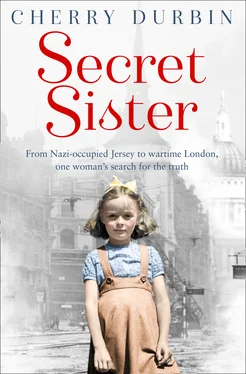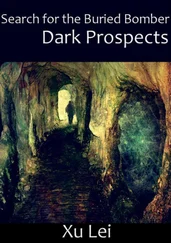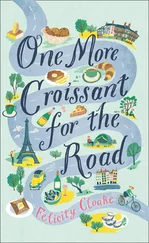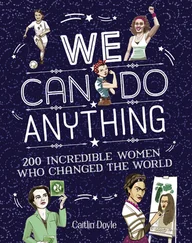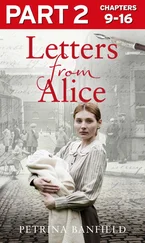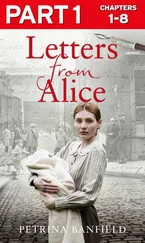In the mid-sixties, late teens to early twenties was the normal age for girls to get married – leave it too late and people described you as being ‘on the shelf’ – and I thought I’d better not miss my chance. The landlady at my digs tried to talk me out of it. ‘Are you sure you’re doing the right thing?’ she asked. ‘He’s quite a lot older than you.’ But my mind was made up simply because, to me, marriage to Eric would mean security. It’s what girls my age did.
Pop came alone to the registry office ceremony in September 1964. I’d bought myself a blue dress, jacket, hat and a pair of shoes in a charity shop, all for three pounds, and my landlady took some photographs in which I look about fifty years old! Standing in front of the registrar, I got my first shock of married life when Eric was asked for his date of birth. As he gave it, I did the arithmetic in my head and realised that he was five years older than I’d thought: thirty-three rather than twenty-eight, making him twelve years my senior. I didn’t say anything, though. I looked at him open-mouthed but didn’t like to make a fuss.
We went for lunch in the Falstaff Hotel in Canterbury – Pop, his sister Blanche, Eric and me. Eric’s family lived in Doncaster and couldn’t travel down for the wedding. Immediately after lunch, Eric and I walked back up the road to strip wallpaper in a house we’d just bought and were doing up. There was no honeymoon; it was straight down to the business of being ‘a married couple’.
Ours was a typical 1950s marriage, a decade too late; although women across the nation were starting to burn their bras, there was certainly none of your Women’s Lib in our household! I did all the shopping, cooking and cleaning while carrying on with my radiography studies, and Eric worked in his chiropody practice during the day then played golf and cricket with his mates in the evening and at weekends.
My weak spot was that I desperately wanted a family, to find somewhere I belonged. When I visited friends’ families I used to analyse the dynamics, trying to figure out how they worked, because family life was something I hadn’t experienced since Mum died. I yearned for lots of children to make a big happy gang in which I was a core member, so I mucked in and cooked and cleaned and did my absolute best to make my marriage a success.
All the same, I remember one moment, a few weeks after the wedding, when I was in a little room at the hospital where I was training. There was a brown rug on the floor, and I stared at it and thought, ‘What have I done?’ Although I’d been dating Eric for two years, agreeing to marry him had been impulsive; it had seemed like something I should do rather than something I wanted to do, and now the reality of the decades stretching in front of me seemed daunting. There was nothing to be done about it, though, so I just snapped myself out of that introspective mood and got on with things.
Soon after the wedding, Pop came to visit, bringing with him a folder of papers. He handed them over, saying, ‘I thought it’s about time you should have these.’
I opened the folder and flicked through. There was a lengthy correspondence with Reginald Johnson & Co Solicitors in Hayes, Middlesex, regarding ‘The Adoption of Paulette’ – and I realised with a start that it was all about me. For some reason my heart started to pound.
It seemed that although I had been born in March 1943 and had gone to live with Mum and Pop (Dorothy and Ernest Vousden) six weeks later, I had not been officially adopted by them until March 1944 because my birth father had been in the army and they hadn’t been able to track him down to get his signature on the paperwork. There was a copy of a sad little letter on blue writing paper from my mum to my birth father, sent care of his unit: ‘We are anxious to adopt her but cannot do so without your written consent, would you kindly do this without further delay & so enable us to get the matters settled.’
It struck me immediately how heart-rending it must have been for Mum and Pop to bring me up for a whole year – doing the nappies and the night feeds, bathing and dressing me – while, at any time, my birth parents could have come to claim me back because the adoption was not formalised. That must have been very stressful for them. How could you let yourself love a baby you might not be able to keep? Yet there was no doubt that Mum and Pop had loved me without reservation from the minute they took me home with them.
‘We were pretty sure they wouldn’t come back for you,’ Pop agreed, ‘but it was certainly a relief when it was all finalised. Your mother and I had been trying for a long time for a baby – since our marriage in 1922 – so as you can imagine we couldn’t wait to have it all confirmed legally.’
‘Twenty-one years!’ I exclaimed. ‘That must have been so hard for you.’
‘It was a particular sorrow for your mother. I had my work but she just had her home to run, and I think she felt it very keenly when friends were talking about their children’s achievements. Thank God she had the nine years of looking after you. It made her so happy.’
I smiled, remembering what a wonderful mother she had been. I was very lucky in that sense … not so much in others.
Next I looked at the four-page certificate that legally made me the child of Dorothy and Ernest Vousden under the 1926 Adoption of Children Act. On the third page, in black and white, there were the names of my birth mother and father: Daisy Louise Noël of Shelburne Road, High Wycombe, and Henri Le Gresley Noël of Saighton Camp, near Chester. I got goosebumps on my arms looking at them.
‘Why do their names sound so foreign?’ I asked.
‘They were from Jersey,’ Pop explained. ‘Daisy was evacuated in 1940 when the Germans were about to invade the Channel Islands. Henri was in the army. I believe their marriage failed and she didn’t feel capable of raising a child on her own, especially during wartime.’
‘Poor Daisy,’ I said, trying to imagine what it must be like to give up your baby. I pictured her in floods of tears as she handed over the bundle swathed in a pristine white blanket.
The last page of the certificate was about wills; it explained that adopted children bore all the same rights as children born naturally to a couple, except that they would not automatically inherit any estate unless there was a will naming them as heirs.
‘Don’t worry; you are named as my heir,’ Pop said. ‘Not that there’s much to inherit.’
He looked tired, and I’d noticed he was getting forgetful. When I was younger I’d never minded having older parents, but now I was in my twenties, Dad was in his sixties and starting to succumb to the niggling ailments of old age.
‘Thanks for bringing these, Pop,’ I said. I couldn’t stop looking at those names – Daisy and Henri Le Gresley Noël. What ages would they be now and what were they doing with their lives?
And then a thought struck me: perhaps they had gone on to remarry and have more children. I might have half-brothers and sisters somewhere. Wouldn’t that be lovely! I daydreamed about discovering a big extended family of cousins and aunties, grandparents, nephews and nieces, who all met up for Christmases and birthdays and weddings. Then I snapped myself out of it. I still had a wonderful dad, and I’d once had the best mum in the world; lots of people couldn’t say as much. I should count myself lucky and not hanker after anything more.
It was fascinating to learn that my birth parents came from Jersey, meaning that I had a connection with the Channel Islands. I knew very little about the wartime occupation there, but I went to the library and did some reading to try to understand what the people had been through. I read that after the Fall of France in June 1940 and its occupation by German troops, the British government decided they couldn’t spare the manpower to defend the islands, which were much closer to France than they were to Britain. Everyone was aware that it would give the Germans a propaganda coup to say they had conquered part of the British Isles, but there would be no particular strategic advantages for them in having a base there and the islands would simply be too tricky for the British Army to defend.
Читать дальше
